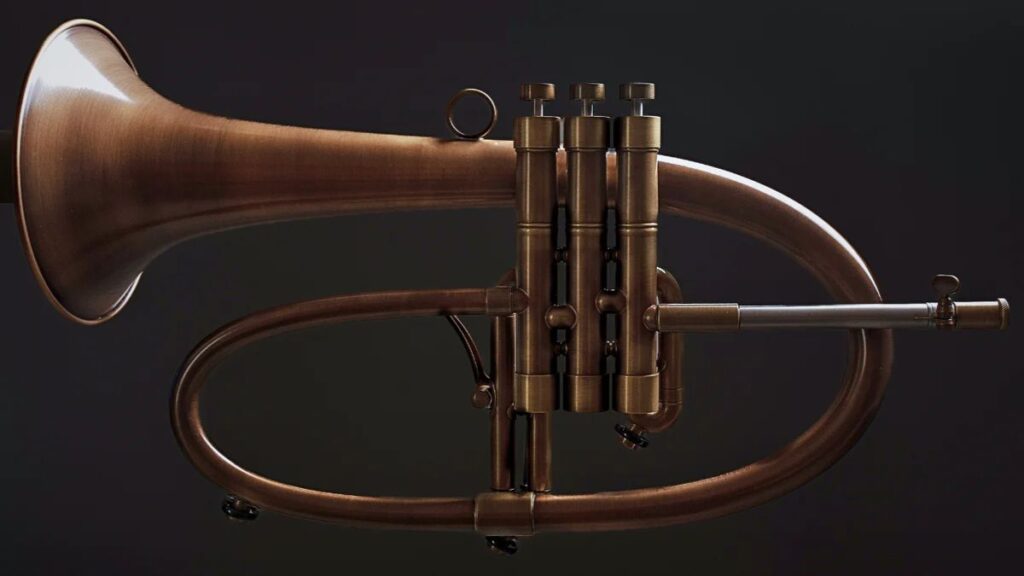Introduction to the Flugelhorn and Its Unique Qualities
The flugelhorn is a brass instrument that often captures the heart of musicians with its warm, rich tones and unique shape. Unlike its more popular cousin, the trumpet, the flugelhorn has a conical bore that gives it a mellow sound perfect for jazz and classical music alike. Its distinctive design not only adds visual appeal but also enhances its tonal qualities, making it a favorite among both amateur and professional players.
But owning a flugelhorn comes with responsibilities. To maintain those beautiful sounds and ensure your instrument lasts for years to come, regular upkeep is essential. Just like any cherished possession, your flugelhorn deserves care to keep it in peak condition.
Whether you’re new to playing or have been serenading audiences for years, understanding how to properly maintain your flugelhorn can make all the difference in performance quality—and even enjoyment—of playing this magnificent instrument. Let’s dive into some valuable tips on caring for your beloved horn!
Importance of Regular Maintenance for Longevity
Regular maintenance is crucial for keeping your flugelhorn in top condition. Just like any musical instrument, it requires attention to detail and care.
Over time, dirt and moisture can accumulate inside the tubing. This buildup affects sound quality and playability. Neglecting regular cleaning can lead to sticky valves or tarnished surfaces.
Routine checks also help identify potential issues before they escalate. A small problem today could become a significant repair tomorrow if left unattended.
Moreover, maintaining your flugelhorn boosts its lifespan. You’ll enjoy vibrant tones for years with proper upkeep.
Music is about expression; ensuring that your instrument performs at its best enhances that experience immensely. Investing time in maintenance pays off during practice sessions and performances alike.
Tools and Supplies Needed for Flugelhorn Maintenance
To keep your flugelhorn in top condition, having the right tools and supplies is essential.
Start with a soft microfiber cloth. This will be perfect for wiping down your instrument after each use. It helps remove moisture and grime that can accumulate over time.
Next, invest in a quality cleaning snake or brush designed for brass instruments. These tools reach deep into the tubing to eliminate any buildup inside.
You’ll also need valve oil specifically meant for brass instruments. This keeps the valves functioning smoothly, ensuring optimal performance during play.
Don’t forget about slide grease! A small tube of this makes it easy to maintain the slides’ mobility without causing wear on the metal.
Consider a polishing cloth treated with polish for brass finishes. Regularly polishing adds shine while protecting against tarnish. With these simple tools at hand, you’ll be well-equipped to care for your flugelhorn effectively.
Step-by-Step Guide for Cleaning and Oiling Your Flugelhorn
Cleaning your flugelhorn is essential for maintaining its sound and appearance. Start by disassembling the instrument. Remove the mouthpiece carefully to avoid any damage.
Fill a basin with warm, soapy water using mild dish soap. Submerge the bell section but don’t fully immerse the valves or slides. Use a soft cloth to wipe down all exterior surfaces.
Next, grab a cleaning snake or brush specifically designed for brass instruments. Gently clean inside each tubing section to remove buildup and debris.
After rinsing everything thoroughly, dry it with a lint-free cloth. Now it’s time to oil your valves; use high-quality valve oil sparingly on each one before working them gently.
Reassemble your flugelhorn once it’s completely dry, ensuring that all parts fit snugly together without forceful pressure applied during reassembly.
Tips for Proper Storage and Transportation of Your Flugelhorn
Storing your flugelhorn properly is crucial for its longevity. Always keep it in a sturdy case when not in use. This protects it from dust, moisture, and accidental damage.
Avoid placing heavy objects on top of the case. Pressure can bend or dent the instrument inside. Choose a cool, dry place to store your flugelhorn, away from direct sunlight and extreme temperatures.
When transporting your flugelhorn, ensure it’s securely fastened within its case. Use additional padding if necessary to prevent shifting during transit.
Always carry it with care; avoid tossing or dropping the case. If traveling long distances, consider using a flight-approved hard shell case for added protection against rough handling.
Before heading out, double-check that you have all accessories like mouthpieces and cleaning supplies stored safely alongside your instrument.
Troubleshooting Common Issues with the Flugelhorn
Flugelhorn players may encounter a few common issues over time. One of the most frustrating is sticking valves. If you notice resistance when pressing down the valve, it’s often due to dirt or lack of lubrication. Regular cleaning and oiling can help prevent this.
Another issue can be an unclear or fuzzy sound. This might stem from moisture buildup in the instrument or dirty mouthpieces. Make sure to clean your mouthpiece regularly, as even small residues can affect tone quality.
If you’re experiencing intonation problems, check your tuning slide. It could need adjustment for better pitch accuracy. Sometimes, just pulling out the slide slightly can make all the difference.
Look out for leaks in tubing joints which might lead to diminished airflow and sound projection. A simple inspection will help identify any problematic areas needing attention before they worsen.
Conclusion: The Benefits of Taking Care of Your Instrument
Taking care of your flugelhorn is essential for ensuring it remains in excellent condition and continues to produce beautiful music. Regular maintenance not only enhances the instrument’s performance but also extends its lifespan, allowing you to enjoy playing for years to come. A well-maintained flugelhorn can provide more consistent sound quality and responsiveness, making your practice sessions and performances more enjoyable.
By investing time in cleaning, oiling, and proper storage techniques, you’ll be safeguarding your musical investment. Troubleshooting common issues can help prevent minor problems from escalating into major repairs. When you prioritize the care of your flugelhorn, you’re nurturing a relationship with an instrument that brings joy and creativity into your life.
Caring for your flugelhorn pays off in many ways—from improved sound quality to increased durability—making each note resonate just a little sweeter. Embrace these maintenance tips as part of your musical journey; they’ll serve both you and your beloved instrument well.







